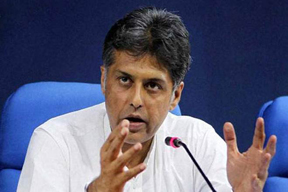 WASHINGTON: The international community must accommodate India into the NPT as a nuclear weapons state, a senior Congress leader has said, citing India’s impeccable track record.
WASHINGTON: The international community must accommodate India into the NPT as a nuclear weapons state, a senior Congress leader has said, citing India’s impeccable track record.
Signed on July 1, 1968, the Treaty on the Non- Proliferation of Nuclear Weapons (NPT) came into force on March 5, 1970. The treaty defines nuclear weapons states as those that have built and tested a nuclear device before 1 January 1967. Under the treaty, the US, Russia, the UK, France, and China are nuclear-weapons states.
India has refused to sign the NPT arguing that it is discriminatory. Pakistan, North Korea and Israel are the other countries which have not signed NPT.
“The time has come for the international community to seriously think or to accommodate India into the NPT as a nuclear weapons power,” Manish Tewari, Congress spokesperson and former Union Minister for Information and Broadcasting told PTI.
Currently a senior fellow at the Atlantic Council, a top American think-tank, Tewari mooted the proposal in this regard during the two-day ‘Nuclear Strategy and Security in the Second Nuclear Age’ conference hosted by its South Asia Center.
The NPT, which would celebrate its 50th year next year, does not reflect the nuclear realities of 2017 just as the Security Council does not reflect the realities of today, Tewari said.
Next year will also be the 20th year of India and Pakistan having tested their nuclear weapons.
“The fact is that the trajectory of India and Pakistan from 1998 to 2017 have been different,” he said.
While India has continued to have “a very robust track record” so far as nonproliferation is concerned, Pakistan of course has been called out by the international community for the A Q Khan network and the proliferation of both nuclear and missile technologies to various parts of the world including North Korea.
That is precisely why the US made that special exception in terms of the civil nuclear agreement to draw India into the international nuclear architecture, he said.
When the NPT was signed they were only five nuclear weapons states but over a period of time the numbers have increased, he said.-PTI





